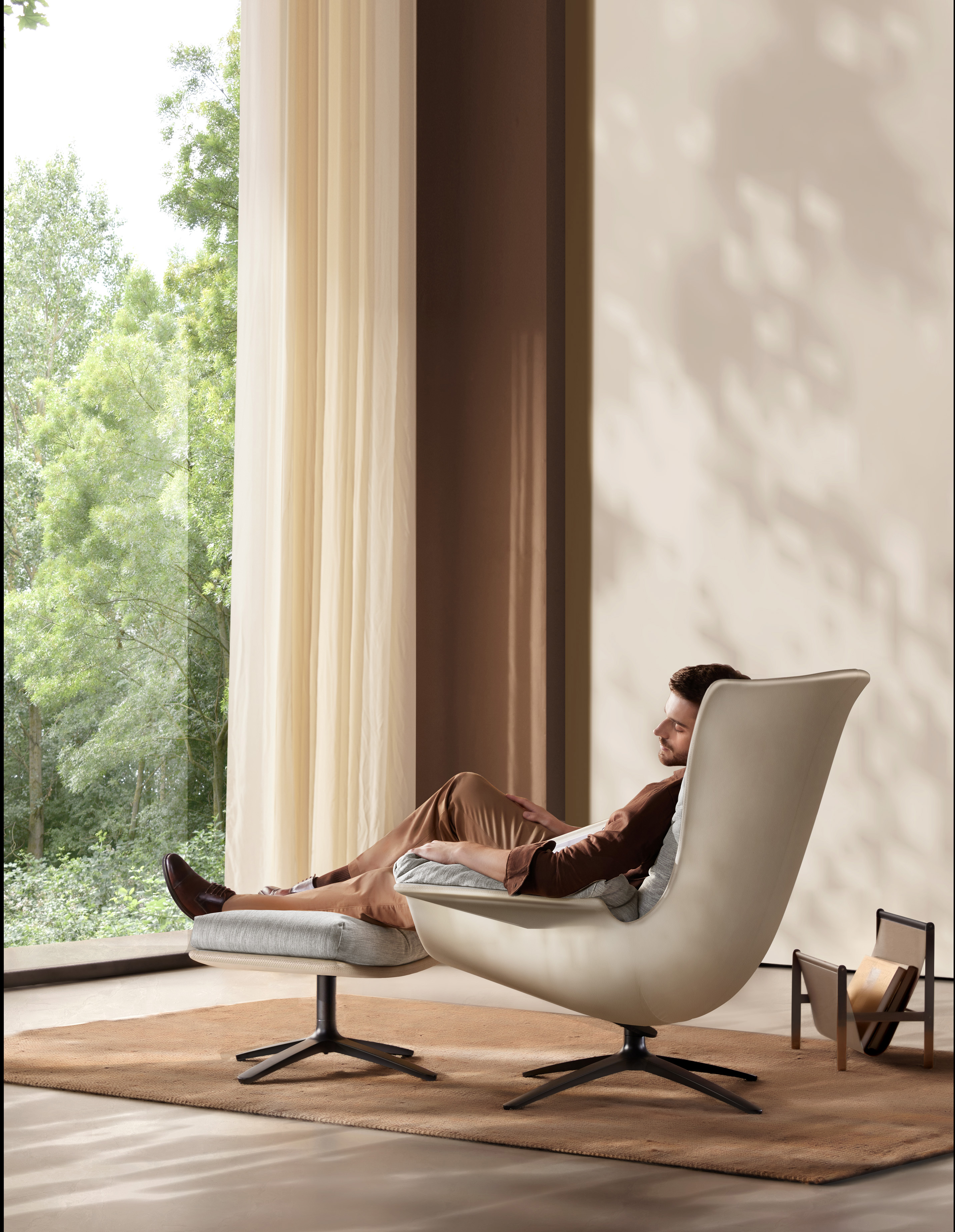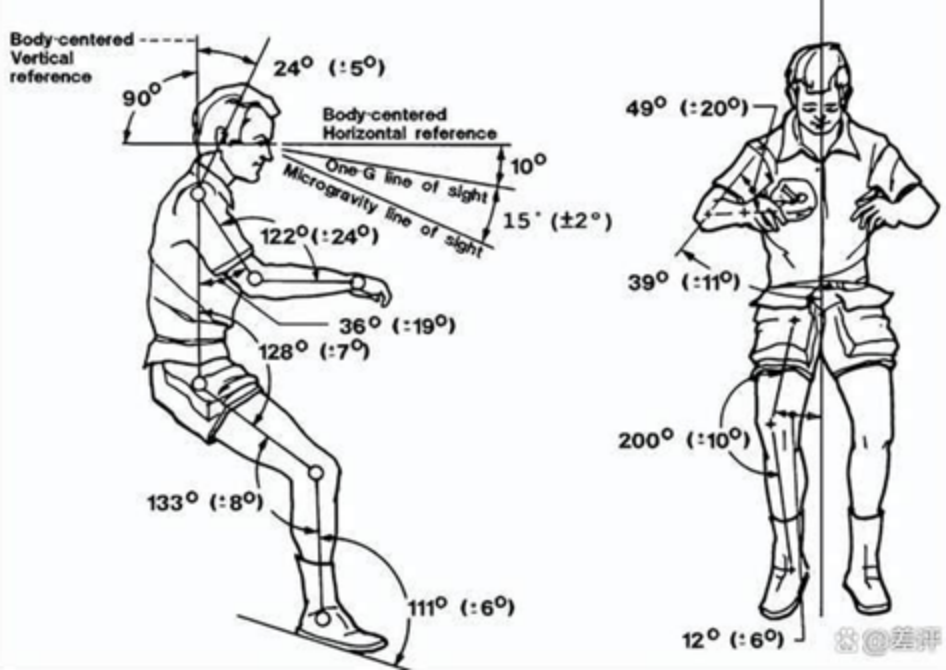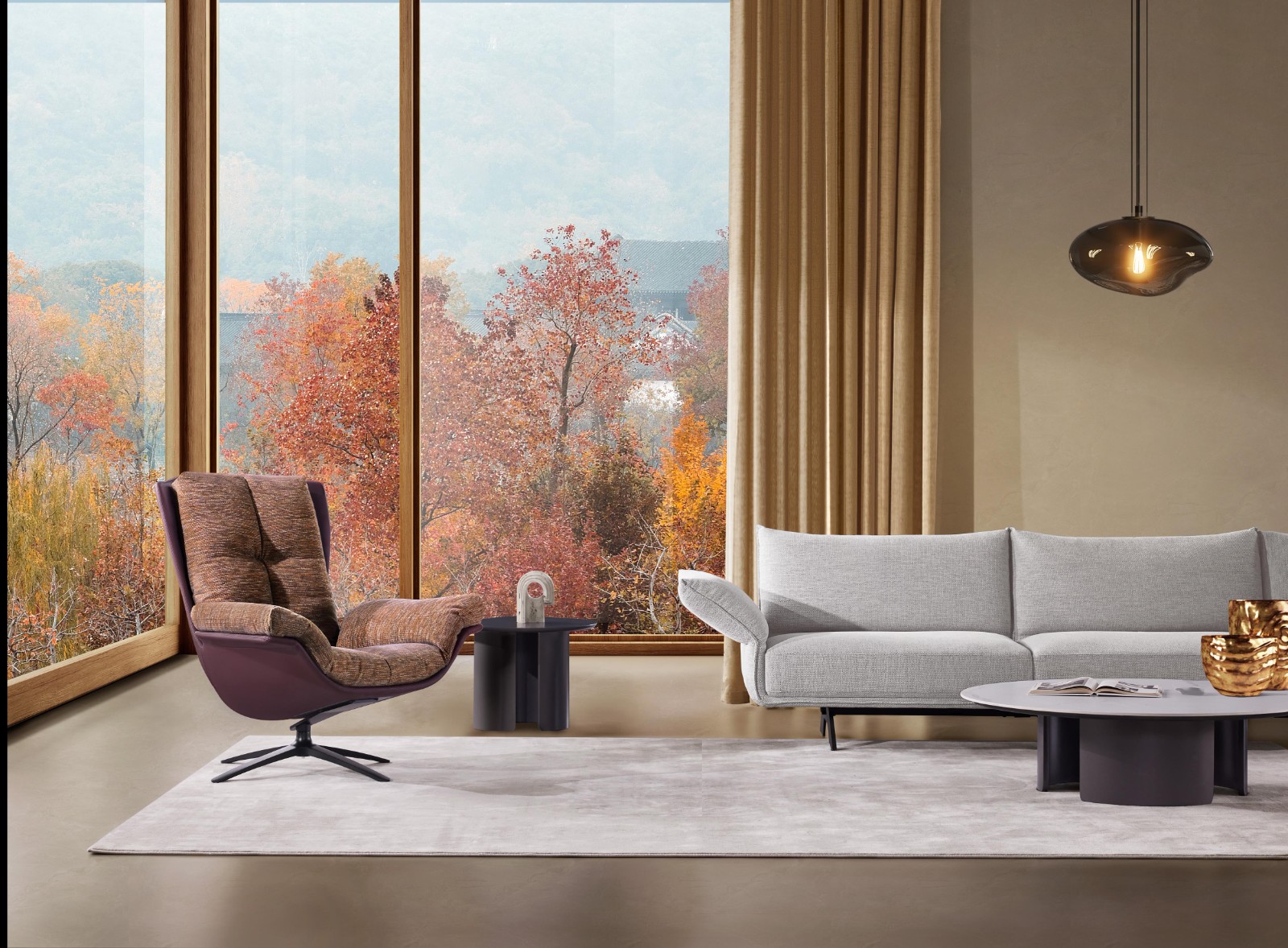
In the modern workplace, many of us spend extended hours seated, often overlooking how the design of office furniture can affect our health. A properly designed backrest angle can enhance sitting comfort, alleviate physical strain, and contribute to overall well-being. This article explores the science behind backrest angles and introduces the UX Chair by Sunon Furniture, a thoughtfully designed solution for healthier, more comfortable work environments.

•Zero-Gravity Posture: A Key Discovery in Ergonomics

Image Caption: NASA Neutral Body Posture (NBP):
A natural, relaxed posture adopted by astronauts in space to reduce bodily strain.
NASA’s research on the zero-gravity posture demonstrates that in a weightless environment, the human body naturally relaxes, with the spine and muscles fully at ease. In this position, the angle between the upper body and thighs is about 126 degrees (± 7 degrees). This discovery provides critical insight into the body’s natural posture and serves as an important reference for designing ergonomic chairs that enhance comfort and reduce strain.
•Scientific Research on Backrest Angles
To determine the most effective backrest angles for various uses, researcher Grandjean conducted a comprehensive study with 25 male and 25 female participants. The study involved comparing 12 multipurpose chairs based on objective measurements, including electromyography (EMG) to assess physical strain, alongside subjective comfort ratings. The findings revealed that the ideal backrest angle for reading was between 101 and 104 degrees, while for a chair designed purely for relaxation, the optimal angle was between 105 and 108 degrees. This research highlights the link between backrest angles and comfort, offering key guidance for choosing healthier office furniture that supports well-being in the workplace.
•Sunon UX Chair: The Perfect Balance of Comfort and Health
Among various office furniture options, the Sunon UX Chair stands out with its carefully designed 105° backrest angle. This angle sits at the sweet spot between the ideal reclining positions for both reading and relaxation, providing optimal comfort for rest. The design not only follows ergonomic principles but also enhances relaxation, offering a soothing experience.
With the Sunon UX Chair, the 105° angle allows you to seamlessly transition between rest and focus. Whether you are taking a short break, relaxing, or engaging in focused work, this chair ensures both comfort and support, enhancing your productivity and well-being.
•4-Minute Power Nap: A Key to Boosting Work Efficiency
NASA scientists have found that a power nap can significantly enhance work performance. Just a 24-minute nap can improve productivity by 34% and increase mental sharpness by 54%. The Sunon UX Chair, designed for comfort, provides the perfect seating solution to incorporate this productivity-enhancing break.
Whether working from home or in the office, the Sunon UX Chair helps you unwind and enjoy a healthier, more comfortable work environment. Its scientifically designed backrest angle not only reduces physical strain but also boosts efficiency, contributing to a more productive and balanced workday.

In today’s fast-paced work environment, selecting a scientifically designed office chair is essential for both efficiency and well-being. The Sunon UX Chair, with its 105° backrest angle, strikes the perfect balance between comfort and support. Experience the difference with the Sunon UX Chair—transform your workspace into a hub of health, comfort, and productivity.
Reference:
Grandjean, E., Hünting, W., Wotzka, G., & Schärer, R. (1973). An Ergonomic Investigation of Multipurpose Chairs. Human Factors: The Journal of Human Factors and Ergonomics Society, 15, 247 - 255.